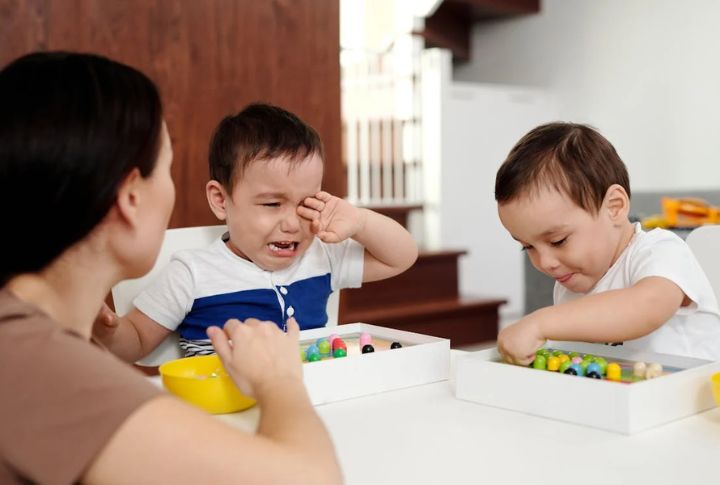Lifestyle
20 Phrases Parents Say That Hurt More Than They Think

You don’t need to scream to leave a scar. Sometimes it’s just one sentence, flung in frustration, that clings to a kid’s heart for years. We’ve all had those moments—snappy comebacks, guilt-soaked outbursts, words that spill out before the brain has time to catch up. But children? They don’t always hear what we mean. They heard what we said. Here’s a closer look at phrases that do more damage than most parents realize—and how to shift the story.
“You’re So Stupid”

A child’s self-worth can be deeply affected by derogatory labels. Verbal abuse, such as calling a child “stupid,” can injure brain pathways, potentially leading to depression and language processing issues. Therefore, such words, though perhaps said in frustration, can have enduring consequences on a child’s mental health.
“I Wish You Were Never Born”

It’s mostly said in a flash of anger, but it lands like a lifetime sentence. Telling a child you regret their existence strips away more than confidence; it rattles their sense of place. The memory may fade for you, but for them, it becomes part of who they are.
“You’re A Burden To Me”

Tell a kid they’re a burden, and they won’t just forget it. That kind of message sticks, making them feel guilty, unlovable, and deeply unsure of themselves. This can also lead children to seek validation elsewhere, potentially resulting in risky behaviors. Ensure to acknowledge a child’s value, as that’s essential for their healthy development.
“Why Can’t You Be Like Your Sibling?”

Sibling comparisons may appear harmless, but developmental psychologists caution otherwise. Repeated remarks like this can lower self-worth, damage identity formation, and foster long-term rivalry. According to studies published in Child Development, affirming a child’s individuality is linked to higher emotional resilience and improved parent-child relationships.
“You’ll Never Amount To Anything”

Predicting failure can crush a child’s aspirations and discourage them from pursuing goals. This phrase can lead to a lack of motivation and self-doubt, hindering personal growth. Instead, encouragement and support are key to fostering a child’s confidence and ambition.
“You’re Too Sensitive”

It may seem harmless, but calling a child “too sensitive” can echo like a judgment in their mind for years. The result? A young heart that learns to silence itself. Emotional strength grows through support—not shame. Words, once spoken, shape the world a child learns to feel in.
“Stop Crying, It’s Not A Big Deal”

Dismissing a child’s emotions invalidates their feelings and hinders emotional development. Why? Children are highly sensitive to language, and such phrases can unintentionally damage their self-esteem and confidence. On the other hand, validating a child’s emotions helps them develop healthy coping mechanisms.
“You’re Always A Disappointment”

Constantly expressing disappointment instills a sense of failure in a child, and that makes them feel incapable of meeting expectations. This can also lead to long-lasting emotional distress and strained parent-child relationships. Avoid it by recognizing and celebrating their achievements, no matter how small.
“I Don’t Love You Anymore”

Emotional instability and uncertainty are caused when love is withheld as a form of punishment. Withdrawing affection from a child can cause severe trauma and have long-term psychological repercussions. That’s because a child’s emotional stability depends on receiving affection and assurance on a regular basis.
“You’re Just Like Your [Negative Trait] Parent”
!["You're Just Like Your [Negative Trait] Parent"](https://citystatezipcode.com/wp-content/uploads/2025/07/7-81.jpg)
Why associate a child with the negative traits of another parent? Using phrases like this creates shame and damages their self-identity. Subsequently, this can lead to internal conflicts and negatively impact the child’s self-perception. It’s important to address behaviors without making harmful comparisons.
“You’ll Never Understand”

Ignoring a child’s feelings or thoughts casts doubt on their experiences and prevents constructive dialogue. Such actions may also lead to kids having trouble expressing themselves later on. Having frank conversations, on the other hand, promotes understanding and trust.
“You’re So Lazy”

“Lazy” isn’t just a word—it’s a label that sticks. When you call a child lazy, you don’t inspire action; you reinforce defeat. It signals that effort doesn’t matter and ability is fixed. Instead, emphasize progress, persistence, and grit. That’s how you help them build real resilience.
“You’re A Failure”

When a youngster is labeled a failure, it might discourage them from trying new things or taking chances and perpetuate a negative view of themselves. The fear of failing and a lack of confidence can also result from this. On the other hand, focusing on progress and learning from mistakes promotes healthy self-esteem.
“You’re Overreacting”

What may feel small to you can feel enormous to a child. Calling their reaction an overreaction teaches them to question their feelings. Over time, they may bottle things up instead of seeking comfort. Recognizing emotions doesn’t mean agreeing—it means showing love through understanding.
“You’re Not Trying Hard Enough”

It’s tempting to say, “Just try harder,” but that oversimplifies the situation. Kids face internal and external hurdles that aren’t always visible. Rather than doubting their effort, help them navigate the struggle. Support and validation go further than pressure ever will.
“You’re So Clumsy”

Sure, kids trip and spill things—but calling them clumsy? That’s not helping. It can actually make them nervous to try new stuff. When you cheer them on for effort, not perfection, you’re helping build their confidence and coordination all at once.
“You’re So Dramatic”

Dismissing a child’s reactions as dramatic can invalidate their feelings and discourage open communication. This can also affect their emotional development and trust in sharing feelings . Next time, try listening empathetically, which supports emotional growth and connection.
“You’re Too Emotional”

Think back to being told you were too sensitive—did it help you grow? Children who hear they’re “too emotional” often start hiding their feelings, unsure if they’re safe to share. Also, it’s only through open emotional expression that real resilience begins to take root and flourish.
“You’re So Selfish”

Labeling a child as selfish can instill guilt and hinder the development of healthy self-interest. Such accusations may lead to confusion about personal boundaries and needs. Children require guidance to understand empathy, not condemnation that shames their individuality. In fact, constructive conversations foster better social understanding.
“Don’t Be Such A Baby”

Tears might seem small, but to a child, they’re how emotions find a voice. Brushing that off with “Don’t be such a baby” tells them those feelings are wrong. Instead, meeting emotions with patience teaches strength, not weakness. Your support today helps build their confidence tomorrow.

